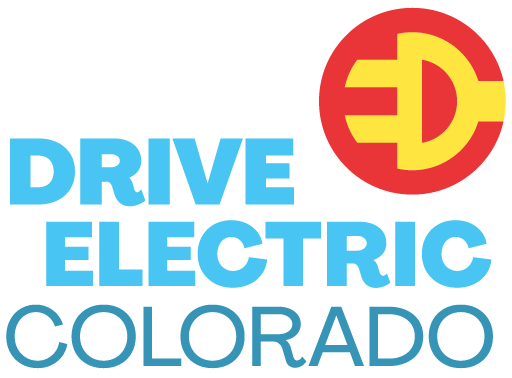How Do I Finance My New or Used EV?
Looking to purchase an electric vehicle but not sure about your financing options? We’ve put together a roadmap to not only help with financing, but also to help orient you to the valuable incentives available to EV buyers.
Don’t Miss Out
Electric vehicle rebates and incentives are ubiquitous. We’ve gathered details for many of them below, but be sure to research what’s available locally as well.
Federal Tax Credits:
New electric vehicles may be eligible for a federal income tax credit of up to $7,500. Credit amounts usually vary based on a vehicle’s battery capacity. See tax credit by EV to get an idea of vehicle costs after credits are applied—both business and personal vehicles qualify.
To get the EV tax credit, buyers need to:
- Fill out Form 8936 , Qualified Plug-in Electric Drive Motor Vehicle Credit
- For personal vehicles, report the credit from Form 8936 on the appropriate line of your Form 1040, U.S. Individual Income Tax Return .
- For vehicles purchased in 2010 or later, this credit can be used toward the alternative minimum tax (AMT).
- If the qualifying vehicle is purchased for business use, the credit for business use of an electric vehicle is reported on Form 3800 , General Business Credit.
State Tax Credits:
- Colorado offers a $2,500 state income tax credit. Some dealers may enable this credit at the point of sale.
- The Charge ahead Colorado program can help fund electric vehicle supply equipment (EVSE) in multi-family housing developments.
- Living outside Colorado? See what your state offers.
Home Charging Rebates:
In addition to the credits available when purchasing your EV, you could also qualify for additional rebates for home charging.
Federal Home Charging Credit:
The federal government offers a tax credit for EV charger hardware and related installation costs. 30% of the costs are covered with maximum credits of $1,000 for residential and $30,000 for commercial installations.
Residential Utility Rebates:
That’s not all. You may also qualify for residential rebates through your local utility for the purchase of a new EV or installation of a Level 2 residential charger. Check for rebates available in your area.
Home Charging Considerations
There are a lot of factors to consider when deciding the best way to charge your EV. Think about the amount of power your home has, if a vehicle has features for energy storage, how quickly and frequently you’ll need to recharge. Once you assess what works for your home, lifestyle, and budget, you can make an informed decision about your best charging solution.
Here’s what you should know about the different charging levels:
Level One Charging — The cheapest and most widely available option. While you may be able to plug your EV directly into any wall outlet, charging is usually slow. On average, most batteries capture just 3–5 miles of range per hour of level one charging, so consider how frequently you’ll charge and the distance of your average trip.
Where you live can also be a factor with level one charging. Level one charging is usually most ideal for people with easy access to a 120V outlet to plug into.
Level Two Charging — The quickest form of home charging for EVs. This option involves purchasing a car charger or using a higher-voltage outlet, which may require home wiring. Local regulations may require permitting and equipment costs can be high. Alternatively, you may be able to repurpose a higher voltage outlet (such as a 240V dryer outlet) to provide level two EV charging, but there are safety issues to consider. It’s recommended that you have a licensed electrician upgrade your wiring and/or install a suitable 240V outlet.
If you’re looking for a “greener” home charging set up, solar-electricity is ideal, but many residential-scale solar systems are undersized for regular EV charging. Alternatively, electric utilities frequently offer residential green power at an additional cost. (E.G. Xcel Energy’s Windsource, Renewable*Connect, and Community Solar programs)
Financing your Electric Vehicle
Some pros and cons to consider with the most common types of EV financing.
- Dealership:
- Most dealers offer on-site financing through their lending partners.
- Pros:
- Convenience – One stop shopping
- Speed – Frequently available day-of-purchase
- Usually have options for low credit, high-risk borrowers
- Cons:
- Options may be limited
- Fewer opportunities to shop for competitive loan terms and rates
- Dealer usually makes money on your financing (conflict of interest)
- Reluctance to sell EVs due to low relative commissions
- Pros:
- Most dealers offer on-site financing through their lending partners.
- Manufacturer:
- Manufacturers offer direct consumer financing on their website.
- Pros:
- Convenient online application process
- Apply for the loan at the same time as ordering your vehicle
- May offer additional incentives
- Pros:
- Manufacturers offer direct consumer financing on their website.
- Cons:
- Financing may not be offered for all model vehicles
- Narrow range of loan terms
- Not available in every state
- Typically, not available for used car purchases
- Cons:
- Credit Union / Bank:
- Banks and credit unions offer competitive EV loans to account holders/members through their branches or websites.
- Pros:
- Competitive rates and the ability to shop around
- High level of customer service
- Convenience of having both your loan and banking services with a single institution
- Typically, you can apply online
- Some offer loan pre-approved
- Cons:
- Usually not available at/through the dealership
- Requires working with multiple vendors (I.E. a financial institution as well as a dealer or manufacturer)
- Credit union’s require eligibility based on their specific field of membership
- Pros:
- Banks and credit unions offer competitive EV loans to account holders/members through their branches or websites.
Remember to compare rates from the options above to ensure you are getting the best rate on your purchase! Now it’s time to cruise.
Thanks to Clean Energy Credit Union for writing this blog post.
Questions? Clean Energy Credit Union’s loan officers are always happy to help. Check out cleanenergycu.org and/or get in touch at 720–479-7900 or .



